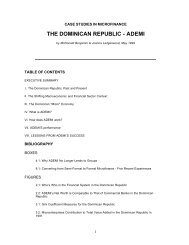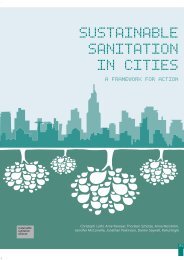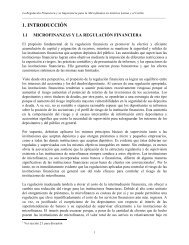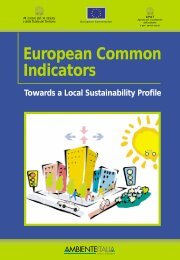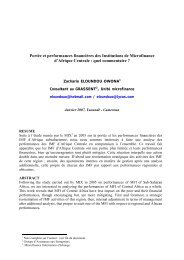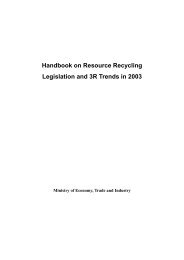The International Implementation Scheme (IIS) - Unesco
The International Implementation Scheme (IIS) - Unesco
The International Implementation Scheme (IIS) - Unesco
Create successful ePaper yourself
Turn your PDF publications into a flip-book with our unique Google optimized e-Paper software.
DESD <strong>International</strong> <strong>Implementation</strong> <strong>Scheme</strong> (<strong>IIS</strong>)<br />
Table 8: Expected outcomes of the DESD<br />
Objective<br />
1. Give an enhanced profile to the<br />
central role of education and<br />
learning in the common pursuit of<br />
sustainable development<br />
2. Facilitate links and networking,<br />
exchange and interaction among<br />
stakeholders in ESD<br />
3. Provide a space and opportunity<br />
for refining and promoting the vision<br />
of, and transition to sustainable<br />
development – through all forms of<br />
learning and public awareness<br />
4. Foster increased quality of<br />
teaching and learning in education<br />
for sustainable development<br />
5. Develop strategies at every level<br />
to strengthen capacity in ESD<br />
Expected outcomes<br />
Integration of educational components into plans for<br />
sustainable development<br />
Assessment of the need for and role of ESD in all<br />
development planning<br />
Through consultations and fora of all kinds and at all<br />
levels –<br />
growing consensus on the strategic importance of ESD<br />
growing cooperation and mutual reinforcement among<br />
ESD initiatives<br />
Broad public awareness of the nature and principles of<br />
sustainable development<br />
Regular and substantial media presence for sustainable<br />
development issues<br />
<strong>The</strong> thread of sustainable development woven into EFA<br />
efforts to raise educational quality<br />
ESD-specific approaches increasingly adopted in<br />
learning situations of all kinds<br />
ESD as part of educator training<br />
High-quality materials and methodologies in ESD<br />
Adequate management capacity to maintain ESD<br />
Furthermore, echoing the values which ESD should promote, potential behavioural outcomes of<br />
this kind of learning would include:<br />
• Respect for other people of current and future generations, recognising their right to a life<br />
of quality and to equitable sharing in the world’s resources;<br />
• Respect for the natural world, based on an understanding of how it works, of how we can<br />
steward its resources and of the devastating effects of not respecting it;<br />
• Knowing how to make choices and decisions, individually and collectively, which take<br />
into account the long-term future of social equity, ecological viability and economic<br />
progress;<br />
• Committed and aware individuals with a global view, but also with the capacity to<br />
envision alternative futures and create change within their societies;<br />
• Capacity to work with others to bring about structural or institutional change within<br />
society so that efforts can be embedded within the mainstream. ESD must go beyond<br />
self-development to promote structural social change.<br />
9 Monitoring and evaluation<br />
An initiative as long and as complex as a Decade must put in place adequate processes of<br />
monitoring and evaluation from the start. Without that, it will be impossible to know if the Decade<br />
is making any difference and what that difference is. A key aspect of monitoring and evaluation<br />
will be the identification of suitable, relevant and measurable indicators at every level – local,<br />
national, regional and international – and for each initiative and programme. As the Decade puts<br />
42<br />
2005



